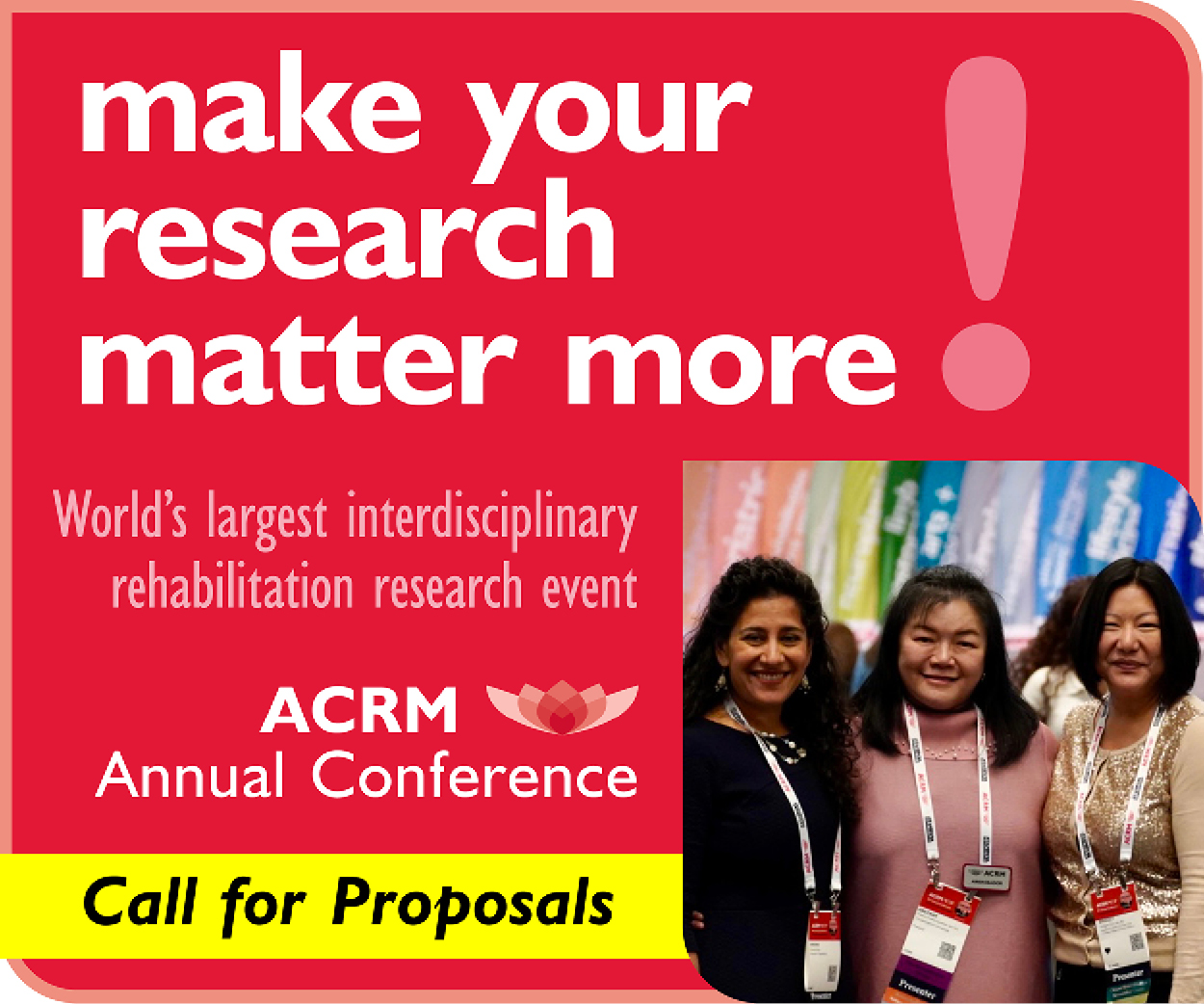Whether you’re finishing an undergrad, a master’s degree, or you’ve been in the workforce for years now, it’s never a bad time to revisit exactly what rehabilitation medicine is and how to make it a career that works for you and helps you reach your goals.
Here at ACRM — the American Congress of Rehabilitation Medicine — we have rehabilitation medicine right in our name. We are your go-to source for CE for nurses, medical networking, and rehabilitation research. Whether you want to receive or provide research on the role of rehabilitation medicine in recovery, you’ll benefit when you join ACRM. In today’s blog, we’re going to cover rehabilitation medicine as a career. If you think that ACRM can help your career (spoiler alert: it can!), then join ACRM today. Better yet, join and then find a special interest group or task force that best aligns with your background.
What is rehabilitation medicine?
It’s never bad to provide a brief, broad overview of just what rehabilitation medicine is. Rehabilitation medicine includes efforts made to improve function and minimize impairment specifically for activities that have been hindered in some way by an illness or injury. Various illnesses or injuries may require differing levels or applications of rehabilitation medicine to help patients succeed.
Overall, rehabilitation medicine has two main goals:
- To maximize independence, participation, quality of life, and function for a person with a disabling condition
- To maintain and prevent increased declines in the functioning of a person with a disabling condition
These disabling conditions could include traumatic brain injury, stroke, cerebral palsy, cancer, amputation, spinal cord injury, neurodegenerative diseases, and more.

Why choose a career in rehabilitation medicine? Why study rehabilitation medicine?
Everyone who chooses a rehabilitation medicine career will study it, but not everyone who studies it will pursue a career. For example, many doctors study rehabilitation medicine and make it the main focus in their practice. However, a caregiver or hospital administrator could also study it — even though it won’t be the main focus of their careers.
Rehabilitation medicine is an exciting, rewarding career. There is an opportunity to help just one person — or thousands of people — with their disabling condition is satisfying.
This is also a good career (or area of study) for someone who likes to develop creative, innovative solutions.
Rehabilitation medicine, as a career, must be comprehensive in order to provide well-rounded, lifelong care to patients.
And, of course, this career requires you to be extremely knowledgeable as you will make diagnoses, prognoses, and provide medical care and attention.
Advantages of working in rehabilitation medicine include a wide range of clinical work, knowing you can make a big difference, and hands-on work with patients. Disadvantages include limited or hard-to-attain advanced training and unrealistic expectations from patients and families.
How can ACRM help advance my career?
Whether rehabilitation medicine is your career or simply an aspect of it, ACRM has the resources and options you need to succeed.
- We offer CE for nurses, where you can often earn up to 20 hours of Continuing Education credit. This is available in all of our 11 disciplines.
- Our annual meetings — the Spring Meeting and the ACRM Annual Conference — provide unique opportunities for medical networking.
- ACRM has special interest groups (ISIGs) and task forces that allow for more medical networking and increased focus on your area of specialty.
If you’re just getting started with your career in rehabilitation medicine or you’ve been doing this for years, it’s never a better time to join ACRM and experience all we have to offer. Join ACRM today!















